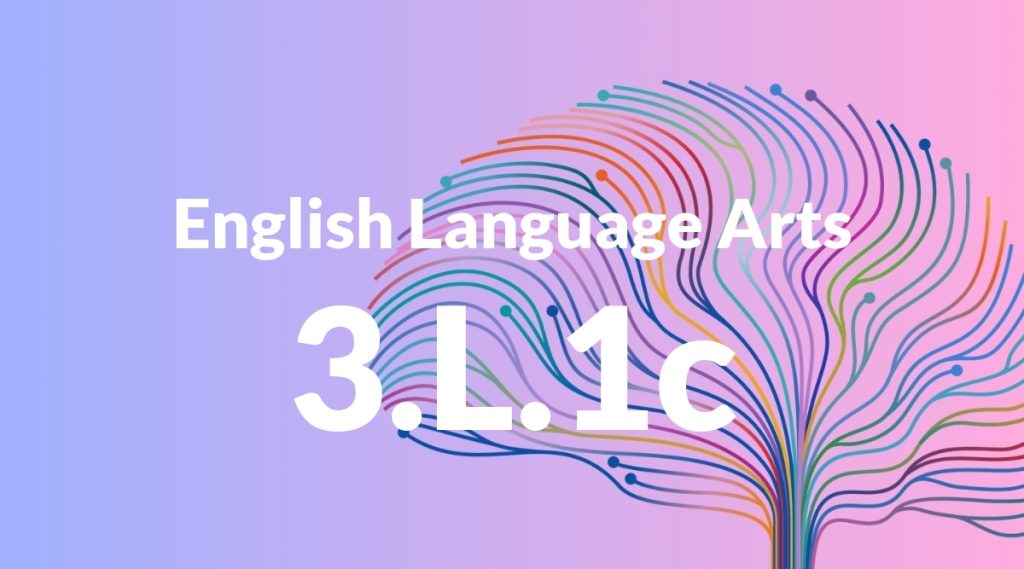Standard: 3.L.1c – Use abstract nouns (e.g., childhood).
Grade level: Grade 3
Subject: English Language Arts
Domain: Language
Teacher Overview
This standard focuses on helping students understand and use abstract nouns, which are nouns that represent ideas, qualities, or states rather than concrete objects. Mastering this standard will enhance students’ descriptive language and ability to express complex ideas. Students should know what nouns are and be able to identify and use concrete nouns in sentences.
After mastering this standard, students will be able to use abstract nouns in more complex sentences and writing, improving their descriptive language and ability to express nuanced ideas.
Common Misconception 1
A common misconception is that students may confuse abstract nouns with adjectives. For example, they might think ‘happiness’ (an abstract noun) is the same as ‘happy’ (an adjective). This confusion arises because both words describe qualities.
Intervention 1
Use exercises that contrast nouns and adjectives, providing clear examples and non-examples. For instance, create sentences that use both ‘happiness’ and ‘happy’ to show their different roles.
Common Misconception 2
Another misconception is that students may believe abstract nouns are always intangible and cannot be represented physically. However, abstract nouns can often have tangible representations, like ‘childhood’ represented by a photo album.
Intervention 2
Provide examples of abstract nouns with tangible representations. Discuss how abstract concepts can be illustrated or symbolized in different ways.
Prerequisite Knowledge
Students should have a basic understanding of nouns and be able to identify and use concrete nouns in sentences.
Subsequent Knowledge
Students will develop the ability to use abstract nouns in more complex sentences and writing, enhancing their descriptive language and expressive abilities.
Instructional Activities
- Create a word wall with abstract nouns and their definitions.
- Write short stories or poems using a list of abstract nouns.
- Discuss characters’ feelings in a book and identify abstract nouns.
- Draw pictures that represent different abstract nouns.
- Play a matching game with abstract nouns and their definitions.
- Have students write sentences using both concrete and abstract nouns.




